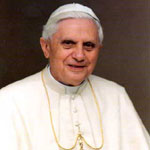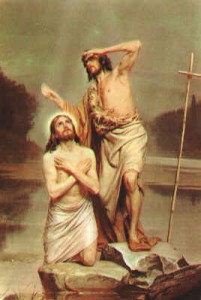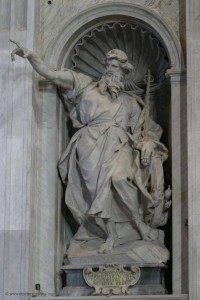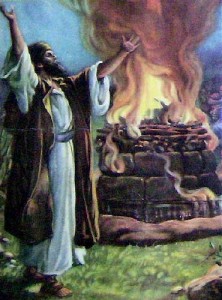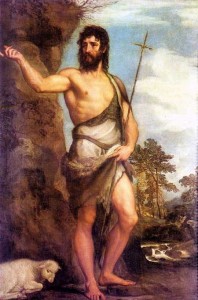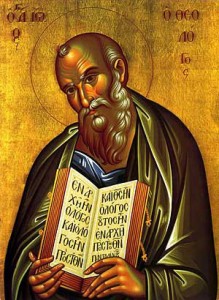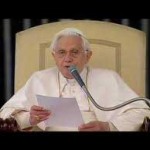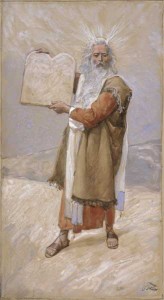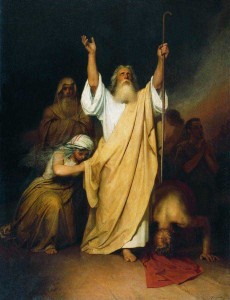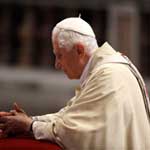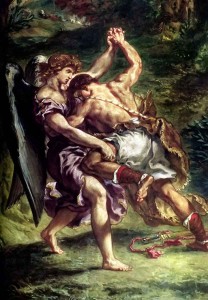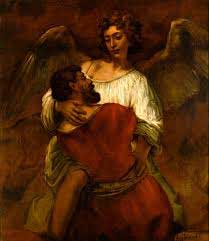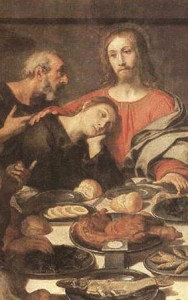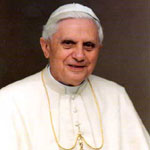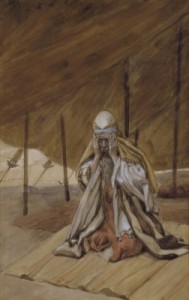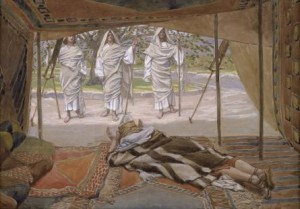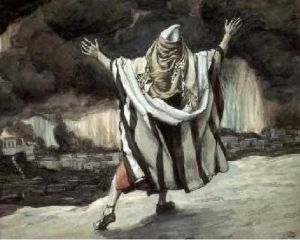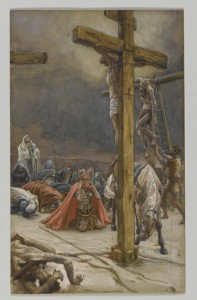top
BENEDICT XVI
GENERAL AUDIENCE
St. Peter’s Square
Wednesday, 1 June 2011
[Video]
Dear Brothers and Sisters,
As we read the Old Testament we note one figure who stands out from among the others: Moses, precisely, as a man of prayer. Moses, the great prophet and leader at the time of the Exodus, carried out his role as mediator between God and Israel by making himself a messenger to the people of God’s words and divine commands, by leading it towards the freedom of the Promised Land and by teaching the Israelites to live obeying God and trusting in him during their long sojourn in the desert. However, I would say also, and above all, by praying.
Moses prayed for the Pharaoh when God, with the plagues, was endeavouring to convert the Egyptians’ hearts (cf. Ex 8-10); Moses asked the Lord to heal his sister Miriam, afflicted with leprosy (cf. Num 12:9-13); he interceded for the people which had rebelled fearful of what those who had spied out the land would report (cf. Num 14:1-19); he prayed when fire was about to burn down the camp (cf. Num 11:1-2), and when poisonous serpents decimated the people (cf. Num 21:4-9); he addressed the Lord and reacted by protesting when the burden of his mission became too heavy (cf. Num 11:10-15); he saw God and spoke “to him face to face, as a man speaks to his friend” (cf. Ex 24:9-17; 7-23; 34:1-10, 28-35).
And on Sinai, even while the people were asking Aaron to make a golden calf, Moses prayed, explaining with symbols his own role as intercessor. The episode is recounted in chapter 32 of the Book of Exodus and there is a parallel account in chapter 9 of Deuteronomy.
It is this episode on which I would like to reflect in today’s Catechesis and, in particular, on Moses’ prayer which we find in the Exodus narrative. The people of Israel were at the foot of Sinai whereas Moses, on the mountain, was waiting for the gift of the Tables of the Law, fasting for 40 days and 40 nights (cf. Ex 24:18; Dt 9:9). The number 40 has a symbolic value and suggests the totality of the experience, whereas fasting indicates that life comes from God, that it is he who sustains it.
Indeed, the act of eating entails the assumption of the nourishment that keeps us going; hence fasting, giving up all food, in this case acquires a religious significance: it is a way of showing that man does not live by bread alone but by every word that comes from the mouth of the Lord (cf. Deut 8:3). By fasting Moses showed that he was awaiting the gift of the divine Law as a source of life: this Law reveals God’s will and nourishes the human heart, bringing men and women to enter into a covenant with the Most High, who is the source of life, who is life itself.
Yet, while the Lord, on the mountain, was giving the Law to Moses, at the bottom of the mountain the people were violating it. Unable to endure waiting and the absence of their mediator, the Israelites turned to Aaron: “make us gods, who shall go before us; as for this Moses, the man who brought us up out of the land of Egypt, we do not know what has become of him” (Ex 32:11). Weary of the journey with an invisible God, now that Moses, their mediator, had disappeared, the people clamoured for an actual, tangible presence of the Lord, and in the calf of molten metal made by Aaron found a god made accessible, manageable and within human reach.
This is a constant temptation on the journey of faith: to avoid the divine mystery by constructing a comprehensible god who corresponds with one’s own plans, one’s own projects.
What happened on Sinai shows the sheer folly and deceptive vanity of this claim because, as Psalm 106[105] ironically affirms: “they exchanged the glory of God for the image of an ox that eats grass” (v. 20). So it was that the Lord reacted and ordered Moses to come down from the mountain, revealing to him what the people were doing and ending with these words: “now therefore let me alone, that my wrath may burn hot against them and I may consume them; but of you I will make a great nation” (Ex 32:10).
As he had to Abraham with regard to Sodom and Gomorrah, now too God revealed to Moses what his intentions were, almost as though he did not want to act without Moses’ consent (Am 3:7).
He said: “let… my wrath … burn hot”. In fact these words “let… my wrath burn hot” were spoken so that Moses might intervene and ask God not to do it, thereby revealing that what God always wants is salvation.
Just as for the two cities in Abraham’s day, the punishment and destruction — in which God’s anger is expressed as the rejection of evil — demonstrate the gravity of the sin committed; at the same time, the request of the intercessor is intended to show the Lord’s desire for forgiveness. This is God’s salvation which involves mercy, but at the same time also the denunciation of the truth of the sin, of the evil that exists, so that the sinner, having recognized and rejected his sin, may let God forgive and transform him. In this way prayers of intercession make active in the corrupt reality of sinful man divine mercy which finds a voice in the entreaty of the person praying and is made present through him wherever there is a need for salvation.
Moses’ supplication was wholly based on the Lord’s fidelity and grace. He referred first to the history of redemption which God began by bringing Israel out of Egypt and then recalled the ancient promise made to the Fathers. The Lord brought about salvation by freeing his people from slavery in Egypt; so “why”, Moses asked, “should the Egyptians say, ‘With evil intent did he bring them forth, to slay them in the mountains, and to consume them from the face of the earth?’” (Ex 32:12).
Once the work of salvation has been begun it must be brought to completion; were God to let his people perish, this might be interpreted as a sign of God’s inability to bring the project of salvation to completion. God cannot allow this: he is the good Lord who saves, the guarantor of life, he is the God of mercy and forgiveness, of deliverance from sin that kills.
Hence Moses appealed to God, to the interior life of God against the exterior judgement. But, Moses then argued with the Lord, were his Chosen People to perish, even though guilty, God might appear incapable of overcoming sin. And this he could not accept.
Moses had a concrete experience of the God of salvation; he was sent as a mediator of divine liberation and then, with his prayers; he made himself the interpreter of a twofold anxiety; he was worried about his people’s future and at the same time he was also worried about the honour due to the Lord, about the truth of his name. In fact the intercessor wanted the People of Israel to be saved because this people was the flock which had been entrusted to him, but also because it was in this salvation that the true reality of God was manifest.
The prayer of intercession is permeated by love of the brethren and love of God, they are inseparable. Moses, the intercessor, is the man torn between two loves that overlap in prayer in a single desire for good.
Moses then appealed to God’s faithfulness, reminding him of his promises: “Remember Abraham, Isaac, and Israel, your servants, to whom you swore by your own self, and said… ‘I will multiply your descendants as the stars of heaven, and all this land [of which I have spoken] I will give to your descendants, and they shall inherit it for ever” (Ex 32:13). Moses recalls the founding story of the origins, of the Fathers of the people and of their being totally freely chosen, a choice in which God alone took the initiative. Not for their own merits did they receive the promise, but because of God’s free choice and his love (cf. Deut 10:15).
And Moses then asked the Lord to continue in fidelity his record of choosing and salvation, by forgiving his people. The intercessor did not ask for his people to be excused of their sin, he did not list any presumed merits, either the people’s or his own, but appealed to God’s bounty: a free God, total love, who does not cease to seek out those who have fallen away, who is always faithful to himself, who offers the sinner a chance to return to him and, through forgiveness, to become righteous and capable of fidelity. Moses asked God to show himself more powerful than sin and death, and with his prayer elicited this divine revelation of himself.
As a mediator of life, the intercessor showed solidarity with the people: anxious solely for the salvation that God himself desires, he gave up the prospect of it becoming a new people pleasing to the Lord. The sentence that God had addressed to him, “of you I will make a great nation”, was not even taken into consideration by the “friend” of God, who, instead, was ready to take upon himself not only the guilt of his people, but also all its consequences.
When, after the destruction of the golden calf, he returned to the mountain to ask salvation for Israel once again, he was to say to the Lord: “But now, if you will, forgive their sin — and if not, blot me, I pray you, out of your book which you have written” (Ex 32:32).
With prayer, wanting what God wanted, the intercessor entered more and more deeply into knowledge of the Lord and of his mercy, and became capable of a love that extended even to the total gift of himself. In Moses, on the summit of the mountain face to face with God, who made himself an intercessor for his people and offered himself — “blot me out” — the Fathers of the Church saw a prefiguration of Christ who from the very top of the Cross was truly before God, not only as a friend but as Son. And not only did he offer himself — “blot me out” — but with his pierced heart he had himself blotted out, he himself became sin, as St Paul himself says, he tookupon himself our sins to ensure our salvation. His intercession was not only solidarity but identification with us: he bears all of us in his Body. And thus his whole life as a man and as Son is a cry to God’s heart, it is forgiveness, but forgiveness that transforms and renews.
I think we should meditate upon this reality. Christ stands before God and is praying for me. His prayer on the Cross is contemporary with all human beings, contemporary with me. He prays for me, he suffered and suffers for me, he identified himself with me, taking our body and the human soul. And he asks us to enter this identity of his, making ourselves one body, one spirit with him because from the summit of the Cross he brought not new laws, tablets of stone, but himself, his Body and his Blood, as the New Covenant. Thus he brings us kinship with him, he makes us one body with him, identifies us with him. He invites us to enter into this identification, to be united with him in our wish to be one body, one spirit with him. Let us pray the Lord that this identification may transform and renew us, because forgiveness is renewal and transformation.
I would like to end this Catechesis with the Apostle Paul’s words to the Christians of Rome: “Who shall bring any charge against God’s elect? It is God who justifies; who is to condemn? It is Christ Jesus, who died, yes, who was raised from the dead, who is at the right hand of God, who indeed intercedes for us. Who shall separate us from the love of Christ?… neither death, nor life, nor angels, nor principalities… nor anything else in all creation, will be able to separate us from the love of God, [which is] in Christ Jesus our Lord” (Rom 8:33-35, 38, 39).
 Sharon Doran serves as the teaching director of “Seeking Truth.” An experienced Bible Study teacher, Sharon has a passion for scripture that will motivate and challenge you to immerse yourself in God’s Word and apply His message to your
Sharon Doran serves as the teaching director of “Seeking Truth.” An experienced Bible Study teacher, Sharon has a passion for scripture that will motivate and challenge you to immerse yourself in God’s Word and apply His message to your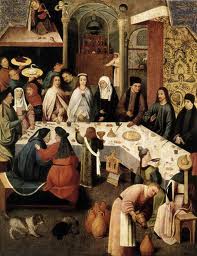 every day life.
every day life. “Seeking Truth” is an in depth Catholic Bible Study, commissioned by the Archdiocese of Omaha in response to John Paul II’s call to the New Evangelization as well as Pope Benedict XVI’s exhortation for all Catholics to study scripture. To learn more go to: www.seekingtruth.net
“Seeking Truth” is an in depth Catholic Bible Study, commissioned by the Archdiocese of Omaha in response to John Paul II’s call to the New Evangelization as well as Pope Benedict XVI’s exhortation for all Catholics to study scripture. To learn more go to: www.seekingtruth.net
